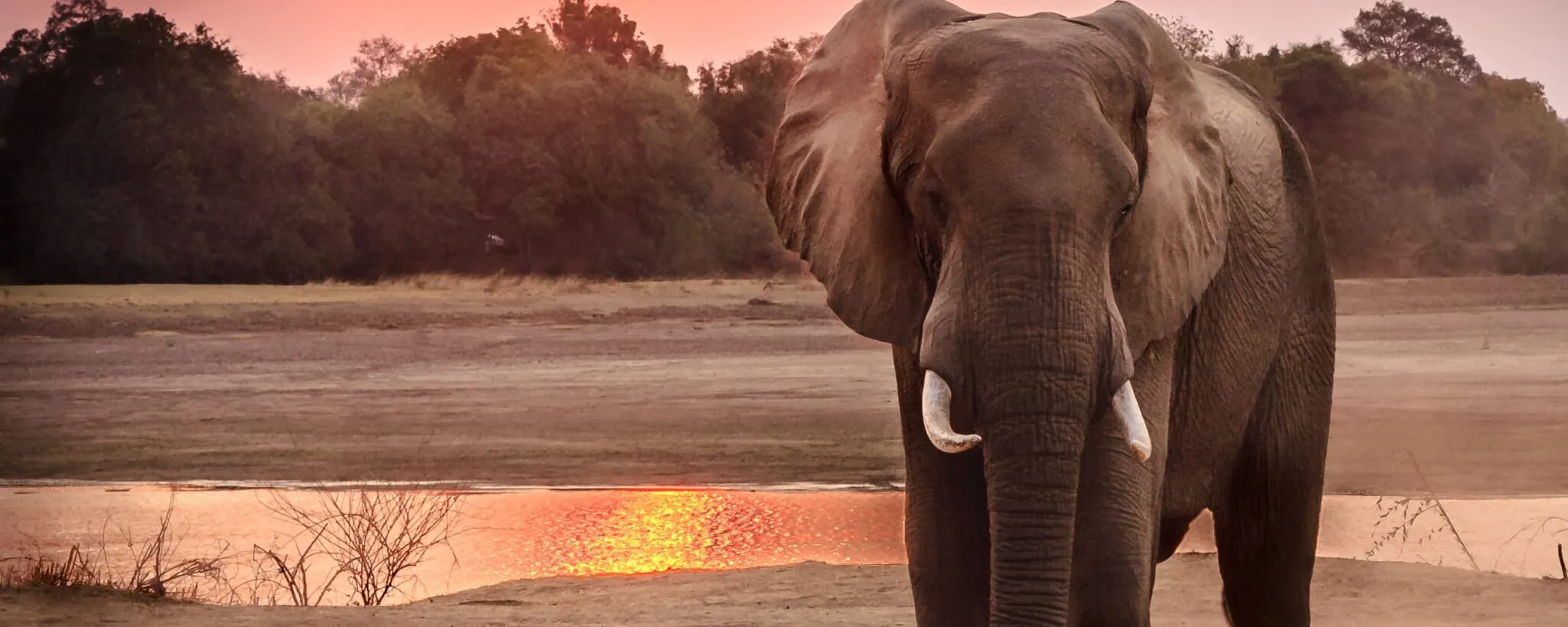Indianapolis Prize Nominees
Global leaders in the field of animal conservation join the ranks of Indianapolis Prize Nominees, devoting their lives to making significant strides to save species through scientific and educational work. These men and women have changed the future for some of the most threatened species from across the globe.
NOMINEES BY REGION OF STUDY
JOSEPHINE EKIRU
Northern Rangelands Trust, Kenya
Accomplished conservationist and peace practitioner focusing efforts in Northern Kenya. Ekiru’s work has resulted in noteworthy improvements such as reducing poaching, boosting ecotourism and bringing peace to conflict-ridden areas. Ekiru’s endeavors played a role in establishing in Northern Kenya Carbon project, benefitting 14 conservancies spanning 4.7 million acres (about the area of New Jersey, USA) to improve grazing for pastoralists and generate revenue.
LISA HYWOOD
Tikki Hywood Foundation, Zimbabwe
Wildlife conservationist and advocate, Hywood is dedicated to saving the world’s most trafficked animal – the pangolin. A leading authority on pangolin rescue, rehabilitation and release, Hywood has collaborated with 16 African range states for pangolin conservation. She established the first pangolin rescue center in Cameroon and has contributed to the rescue of over 380 Temminck’s ground pangolins and over 120 White-bellied pangolins.
GLADYS KALEMA-ZIKUSOKA, DVM
Conservation Through Public Health, Uganda
Wildlife veterinary officer and protector of critically endangered mountain gorillas in East Africa. Dr. Kalema-Zikusoka promotes conservation by cultivating an understanding of how humans and wildlife can coexist in protected areas in Africa. She founded Conservation Through Public Health, an organization promoting biodiversity conservation through enabling the communities and wildlife to coexist by improving people’s health and livelihoods in and around Africa’s protected areas.
LUCY KEITH-DIAGNE, PH.D.
African Aquatic Conservation Fund, Senegal
Marine conservationist focusing on the survival of the African manatee, Dr. Keith-Diagne is the founder and executive director of the African Aquatic Conservation Fund which oversees a range-wide genetic study to define the number of populations of the species for the first time, the first satellite tracking study for African manatees and the Senegal Stranding Network.
LALY LICHTENFELD, PH.D.
African People & Wildlife, Tanzania
Ecologist dedicated to ‘finding the balance’ between people and wildlife, Dr. Lichtenfeld strives to develop mutually beneficial strategies for conserving large landscapes where people and wildlife interact via innovative programming in human-wildlife conflict prevention. As co-founder and CEO of African People & Wildlife, her efforts have helped protect more than 500 lions in the Tarangire ecosystem and to preserve seven vulnerable or endangered species in Tanzania.
LAURIE MARKER, PH.D.
Cheetah Conservation Fund, Africa
Research scientist who employs multifaceted approaches to the conservation of wild cheetahs in Namibia. Marker conducted research, established conservation models and created cooperative alliances on behalf of cheetahs, such as collaborating with local farmers to raise livestock guardian dogs to reduce human/cheetah conflict. She is the founder and executive director of the Cheetah Conservation Fund. Marker was a Finalist for the 2008 and 2010 Indianapolis Prize.
PETRONEL NIEUWOUDT
Care for Wild, South Africa
Utilizing her background in public relations, Nieuwoudt became a conservationist more than two decades ago. She specializes in the rescue, rehabilitation and rewilding of black and white rhinos. Nieuwoudt established Care for Wild as a non-profit dedicated to the rehabilitation of African indigenous wildlife. It serves as the largest rhino sanctuary of its kind around the globe.
LILY-ARISON RENÉ DE ROLAND, PH.D.
The Peregrine Fund, Madagascar
Revolutionizing conservation in Madagascar, Dr. René de Roland has contributed to the establishment of five national protected areas totaling 1,550 square mile. Serving as The Peregrine Fund’s national director of its Madagascar Program, René de Roland has helped discover or rediscover several new species including the Madagascar pochard duck, lemur species and a wolf spider. His community-based models alleviate human-wildlife conflicts and allow the conservation of Madagascar’s threatened animal species.
TARA STOINSKI, PH.D.
Dian Fossey Gorilla Fund, Rwanda & USA
Serving as the president, CEO and chief scientific officer for the Dian Fossey Gorilla Fund, Dr. Stoinski has advocated for mountain gorillas and other primates for nearly 30 years. The author of more than 200 scientific publications and books, Stoinski leads science-based conservation efforts in Rwanda and the Democratic Republic of Congo, greatly expanding the Fossey Fund’s work to study the ecosystems where gorillas live.
LEE JAMES TAYLOR WHITE, PH.D.
University of Stirling, Scotland & Institute for Tropical Ecology Research, Gabon
Working as a field biologist and conservationist for 40 years, Dr. White’s research focuses on the critically endangered African forest elephant and their keystone ecological role in the countries of the Congo Basin. White has directed extensive population assessments, combated habitat loss, created a network of 13 national parks in Gabon and founded new collaborations thus protecting half the world’s forest elephants.
KERRI WOLTER
VulPro, South Africa
Manages research on vulture disease and nutrition, facilitates breeding census across colonies, and coordinates wild captures to apply GPS tracking tags. Wolter manages a rehabilitation and captive breeding center with more than 150 non-releasable vultures. She is the founder and chief executive officer of VulPro, an organization focused on advancing knowledge and awareness of African vultures.
RAJU ACHARYA SHARMA
Friends of Nature, Nepal
Executive Director of Friends of Nature advocating for owl conservation in Nepal, Sharma pioneered “Nepal Owl Festival,” which benefits more than 5,000 people and motivates local governments to create owl conservation areas and parks.
PURNIMA DEVI BARMAN, PH.D.
Aaranyak, WiNN (Women in Nature Network), India
Pioneer in conservation efforts for greater adjutant storks. Barman created a campaign to ensure the survival of adjutant storks and created community pride in villages that are home to the species. She serves as the director of WiNN, India Chapter, which was established to build connections among women around the world to manage natural resources and is the founder of the “Hargila Army,” which has organized and empowered 10,000 rural women to become community advocates and conservationists.
EHAB EID
Eco Values for Sustainable Development, Jordan
Advocate for biodiversity, protected areas and environmental sustainability in West Asia. Eid led the way in transforming the Aqaba Marine Park into the Aqaba Marine Reserve. The successful ecosystem conservation effort protected some of the most temperature-resilient corals in the world.
ZHOU JINFENG, PH.D.
China Biodiversity Conservation and Green Development Foundation, China
Passionate scientist protecting the population of great bustards. Dr. Zhou established a conservation area to protect the great bustard based on its migration and residence conditions. Working with community leaders, Zhou’s efforts have resulted in a significant decrease of ceremonial releases, denuding of wild populations and mistreated animals.
TILO NADLER
Three Monkeys Wildlife Conservancy, Vietnam
Engineer turned conservationist, Nadler is passionate about protecting and conserving the primate species of Vietnam. He created the Endangered Primate Rescue Center three decades ago, which was the first of its kind in Southeast Asia, providing shelter for seized endangered primates. He has also spearheaded captive breeding and reintroduction programs helping to bring back species from the brink of extinction.
CITRAKASIH NENTE, DVM
Yayasan Ekosistem Lestari, Indonesia
Wildlife veterinarian striving for the protection of orangutans, Dr. Nente oversees the Sumatran Orangutan Conservation Program (SOCP) Orangutan Quarantine and Rehabilitation Center, a facility that provides medical care, rehabilitation and socialization for rescued orangutans. Nente has assisted in the release of over 330 orangutans back to protected forests in Sumatra.
IAN SINGLETON, PH.D., OBE
Orangutan Haven & PanEco Foundation, Indonesia
Ecologist and zoologist who served as the executive director of the Sumatran Orangutan Conservation Program (SOCP) for more than twenty years, Dr. Singleton plays a major role in bringing global attention to the plight of Sumatra’s orangutans. His work rehabilitating orangutans and returning them to life in the wild led to a pivotal role in protecting forest habitats in Indonesia in 2014.
BIBHAB KUMAR TALUKDAR, PH.D.
Aaranyak, India
Dedicated rhinoceros expert who founded Aaranyak, one of Northeast India’s largest conservation and research organizations. Dr. Talukdar’s work to curb poaching and guide rhinoceros conservation research has been featured in more than 80 publications. His dedication to enhancing human-wildlife interactions has led to a decrease in conflict in the Eastern Himalayas over the past two decades.
COLIN SIMPFENDORFER, PH.D.
University of Tasmania, Australia
Protector of sharks and rays, Dr. Simpfendorfer’s work spans nearly 40 years and focuses on sustainable management of these fished species. His research with critically endangered sawfishes, the five species of rays with long-toothed rostra, contributed to the inclusion of the small tooth sawfish species listing under the US Endangered Species Act in 2003.
AMY DICKMAN, PH.D.
Lion Landscapes, Great Britain
Wildlife biologist dedicated to the conservation of lion populations in Tanzania by sharing best practices with local communities to live in harmony with lions. Dr. Dickman serves as the director of Oxford University’s Wildlife Conservation Research unit, where her vision and leadership enable more than 60 researchers to tackle key conservation challenges globally.
AXEL HOCHKIRCH, PH.D.
National Museum of Natural History, Luxembourg
Protector of invertebrates worldwide through conservation, research and education. Dr. Hochkirch pioneered conservation strategies for the critically endangered Crau plain grasshopper; reversed the fate of endangered Adriatic marbled bush-cricket; and rediscovered the Gran Canaria crested grasshopper and Gran Canaria bush-cricket.
PETER PRASCHAG, PH.D.
Turtle Island, Austria
Guiding initiatives to protect some of the world’s most endangered turtle species, Dr. Praschag, a conservation biologist, established Turtle Island more than a decade ago. The non-profit creates assurance colonies for rare species, produces offspring for repatriation in the wild and engages in field-based conservation initiatives. Praschag’s groundbreaking research helped identify the conservation urgency for the Northern River Terrapin species.
ANASTAZIA T. BANASZAK, PH.D.
Institute of Marine Sciences and Limnology, National Autonomous University of Mexico, Mexico
Conservationist devoted to coral reef conservation, Dr. Banaszak develops locally feasible practices for coral breeding and larval propagation for restoration. She researches the photobiology of phytoplankton, coral and coral reef-dwelling organisms, coral reproductive biology and ecology.
JOEL BERGER, PH.D.
Wildlife Conservation Society, USA
Conservation scientist leading research projects on pronghorn antelope migration corridors, impacts of energy development on wildlife in Greater Yellowstone and climate change on musk ox in the Alaskan Arctic and saiga antelope conservation in Mongolia. Dr. Berger was named an Indianapolis Prize DeHaan Finalist in 2014, 2016 and 2018.
SHEILA BOLIN
The Regal Swan® Foundation, Inc., USA
Advocate for swans worldwide through conservation, research, veterinary medicine and education. Bolin is the president and CEO of the Regal Swan® Foundation, Inc. She is the author of habitat and care books and a member of the International Union for Conservation of Nature’s (IUCN) Swan Specialist Group.
CHRISTOPHER BUTTERMORE
The Dallas World Aquarium & Auburn University, USA
Motivated amphibian conservationist working to improve the status of the critically endangered Lehmann’s poison frog. Using his expertise in Lehmann’s poison frog biology and reproduction, Buttermore has been instrumental in the success of the Oophaga lehmanni species action plan, a captive breeding program that aims to release the species back into the wild.
JUAN CARLOS CANTÚ GUZMÁN
Teyeliz, A.C., Mexico
Conservation biologist serving as a founder of Aquasis, a non-profit organization promoting endangered species and habitat conservation in Brazil. Campos helped downlist the Antillean manatee in Brazil and created a Western Hemisphere Shorebird Reserve Network site for the wintering grounds of the endangered Red Knot.
TOPILTZIN CONTRERAS-MACBETH, PH.D.
Autonomous University of the State of Morelos, Mexico
Conservation biologist working to protect Mexico’s freshwater fish populations, Dr. Contreras-MacBeath was instrumental in the creation of the protected areas for threatened cyprinid fish and worked with local communities on the protection of endangered axolotl.
LISA DABEK, PH.D.
Paupa New Guinea Tree Kangaroo Conservation Program; Woodland Park Zoo, USA
Creator of the first conservation area in Papua New Guinea focused on tree kangaroos. Dabek pioneered the use of Crittercam© technology on arboreal mammals for the first time, allowing scientists to record animal behavior through mounted video cameras and transmitters. She is the founder of the Tree Kangaroo Conservation Program.
SHARON L. DEEM, DVM, PH.D.
Saint Louis Zoo Institute for Conservation Medicine, USA
Wildlife veterinarian dedicated to the research, outreach and action for turtle and tortoise species worldwide. Dr. Deem’s focus on public health and sustainable ecosystems stems from her work as a veterinary epidemiologist. She uses the One Health approach to better understand the increasing anthropogenic threats facing turtle and tortoise species.
KAREN ECKERT, PH.D.
Wider Caribbean Sea Turtle Conservation Network, WIDECAST, USA
Marine biologist promoting the recovery and sustainable management of sea turtle populations in more than 40 nations and territories. As the executive director of WIDECAST, Dr. Eckert has helped protect six species of endangered sea turtles and mobilized community and government support in Caribbean nations to fully protect sea turtles. Eckert was named an Indianapolis Prize DeHaan Finalist in 2023.
BIRUTÉ MARY GALDIKAS, PH.D.
Orangutan Foundation International, USA
Orangutan researcher who first documented the long orangutan birth interval and recorded more than 400 types of food consumed by orangutans. As president and co-founder of Orangutan Foundation International, Dr. Galdikas has contributed to the release of more than 500 rehabilitated orangutans back into the wild and provided unprecedented detail about orangutan ecology. Galdikas was named an Indianapolis Prize DeHaan Finalist in 2023.
RODNEY JACKSON, PH.D.
Snow Leopard Conservancy, USA
A leading expert on wild snow leopards and their high-mountain habitat, Dr. Jackson spends six months each year in Central Asia’s mountains, tracking the cats over dangerous terrain. Jackson helped lead an international team in the first-ever range-wide genetic assessment of snow leopards, and as their classification has improved from endangered to vulnerable, he continues to create solutions to sustain their populations. Jackson is a past Indianapolis Prize DeHaan Finalist.
DAVID JOHNSON
Katie Adamson Conservation Fund, USA
Conservation biologist working to save the greater one-horned rhino in Nepal. Johnson’s efforts help support communities with sustainability projects to reduce rhino poaching incidents in Chitwan National Park. He co-founded the Katie Adamson Conservation Fund in 2014 with the goal to help endangered animal species throughout the world through education and community engagement.
RODERIC MAST
Oceanic Society, USA
Marine biologist and global leader in the field of sea turtle conservation, Mast co-created the State of the World’s Sea Turtles (SWOT) program – a global network of sea turtle scientists, conservationists and enthusiasts to provide tools, guidance and financial support. He implemented game-changing approaches such as regional management units and a conservation priorities portfolio, which have revolutionized red-listing and priority setting.
GABRIELA MASTROMONACO, PH.D.
Toronto Zoo, Canada
Reproductive biotechnologist focusing her skills on Canadian wildlife, Dr. Mastromonaco recognizes the value of information gained from zoo-housed animals in developing tools to support the management of wild populations. Mastromonaco has curated the most species-diverse biobank in Canada and advocates for the power of biobanking as a global biodiversity tool.
CHARUDUTT MISHRA, PH.D.
International Snow Leopard Trust, USA
Wildlife scientist and expert in snow leopard conservation, Dr. Mishra has spent more than 25 years protecting and advocating for snow leopards across all 12 of their range countries. As the executive director for the International Snow Leopard Trust, Mishra pioneered community conservation and his team protects 30,000 to 58,000 sq. mi. of snow leopard habitat in partnership with indigenous communities.
JULIE PACKARD
Monterey Bay Aquarium, USA
International leader in ocean conservation, Packard strives to protect marine species and ecosystems. She has led the charge for the sustainable seafood movement by building a global seafood program grounded in ecosystem-based science and a market-based approach. As the founding executive director of the Monterey Bay Aquarium, Packard is a leading voice for science-based policy reform in support of a healthy ocean.
MAUREEN REILLY
Tech 4 Conservation Inc., Canada
Expanding the availability of advanced technology to protect animal species, Reilly is the president and co-founder of Tech 4 Conservation Inc. Through the development of the African Carnivore Wildbook, which uses AI to enable rapid and large-scale individual identification, the non-profit group aims to provide field practitioners with tools and solutions to support their conservation efforts.
ALBERTO ALVES CAMPOS
University of British Columbia & Aquasis, Brazil
Conservation biologist serving as a founder of Aquasis, a non-profit organization promoting endangered species and habitat conservation in Brazil. Campos helped downlist the Antillean manatee in Brazil and created a Western Hemisphere Shorebird Reserve Network site for the wintering grounds of the endangered Red Knot.
NATALY CASTELBLANCO-MARTíNEZ, PH.D
El Colegio de la Frontera Sur, Mexico
Marine conservationist devoted to the study and protection of manatees in Latin American countries. Focusing on a holistic approach, Dr. Castelblanco-Martínez’s goal is to foster a culture of stewardship and coexistence between manatees and human communities.
SEBASTIÁN DI MARTINO
Rewilding Argentina Foundation, Argentina
Leading rewilding and restoration efforts throughout Argentina, Di Martino’s conservation work is motivated by the ongoing biodiversity crisis. Directing rewilding efforts for more than one million hectares in Iberá and other areas throughout Argentina, he brings jaguar conservation to a new level with his reintroduction techniques – transforming populations from near extinction.
ALVARO JOSÉ VELASCO BARBIERI
Crocodile Specialist Group, Venezuela
Directs conservation programs for Orinoco crocodiles in Venezuela and South America. Velasco coordinated captive breeding activities to strengthen Orinoco crocodile populations in the wild through the release of captive-bred animals in areas where the species
Conservation Heroes in Action
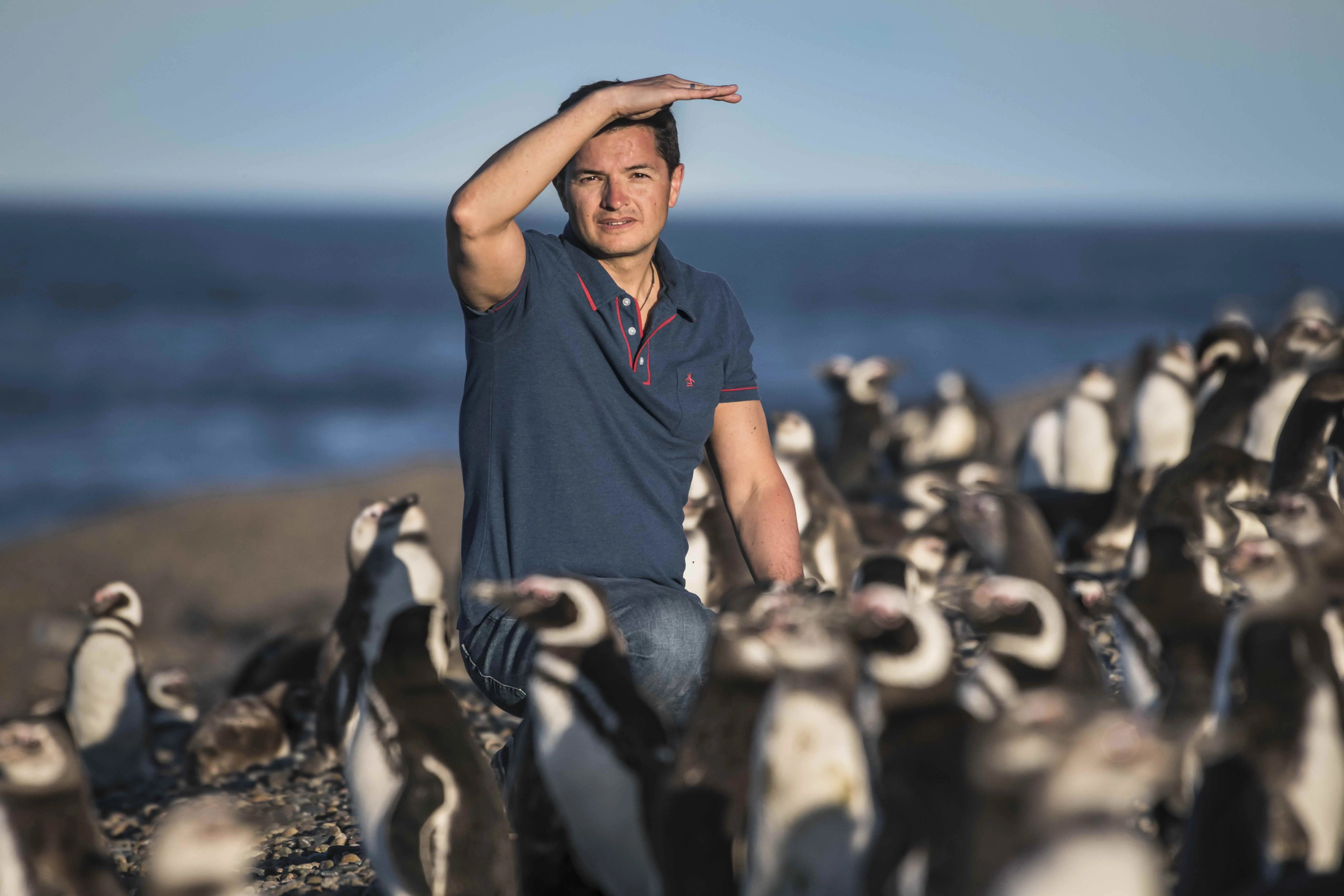
2023 Prize Winner
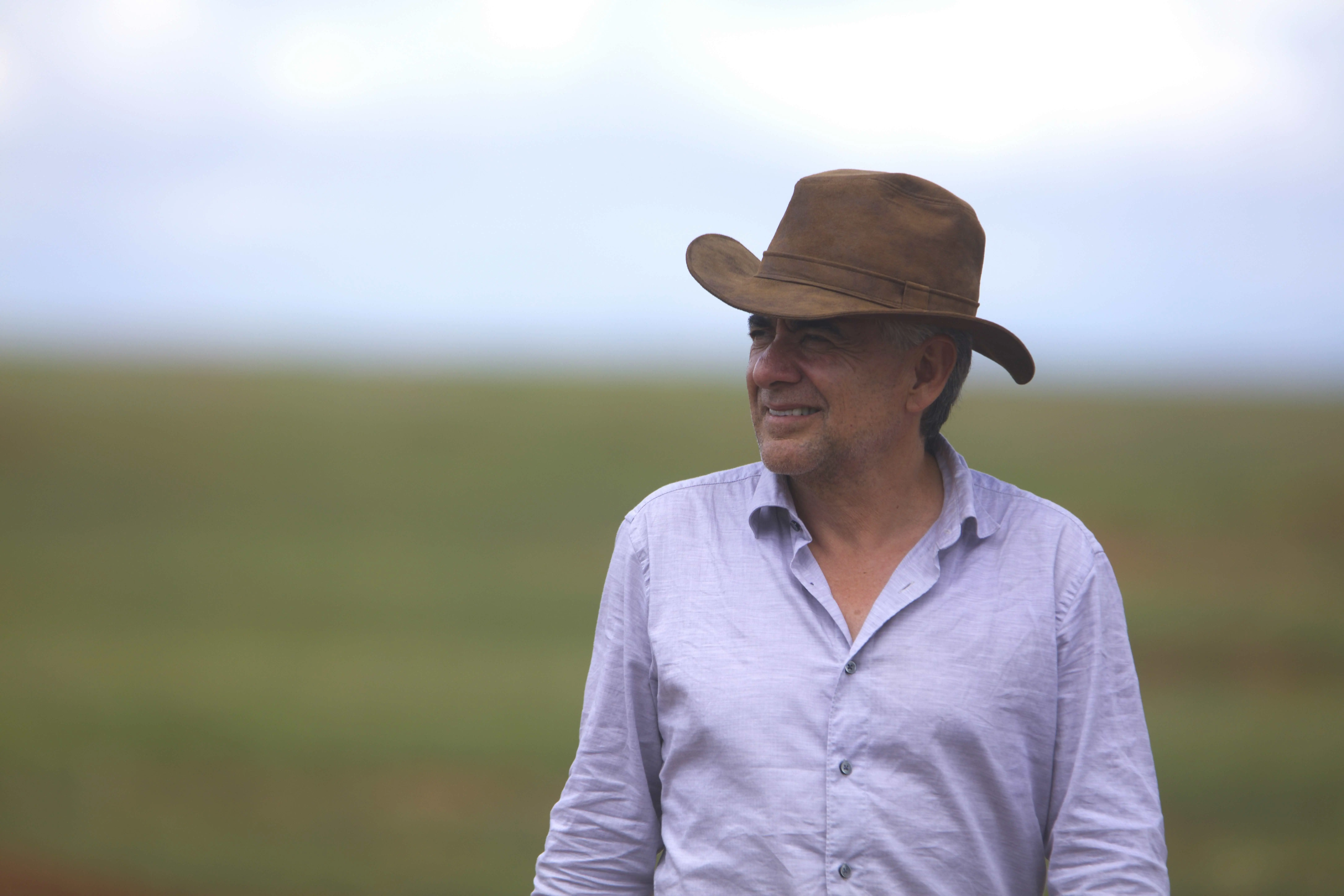
DeHaan Finalist
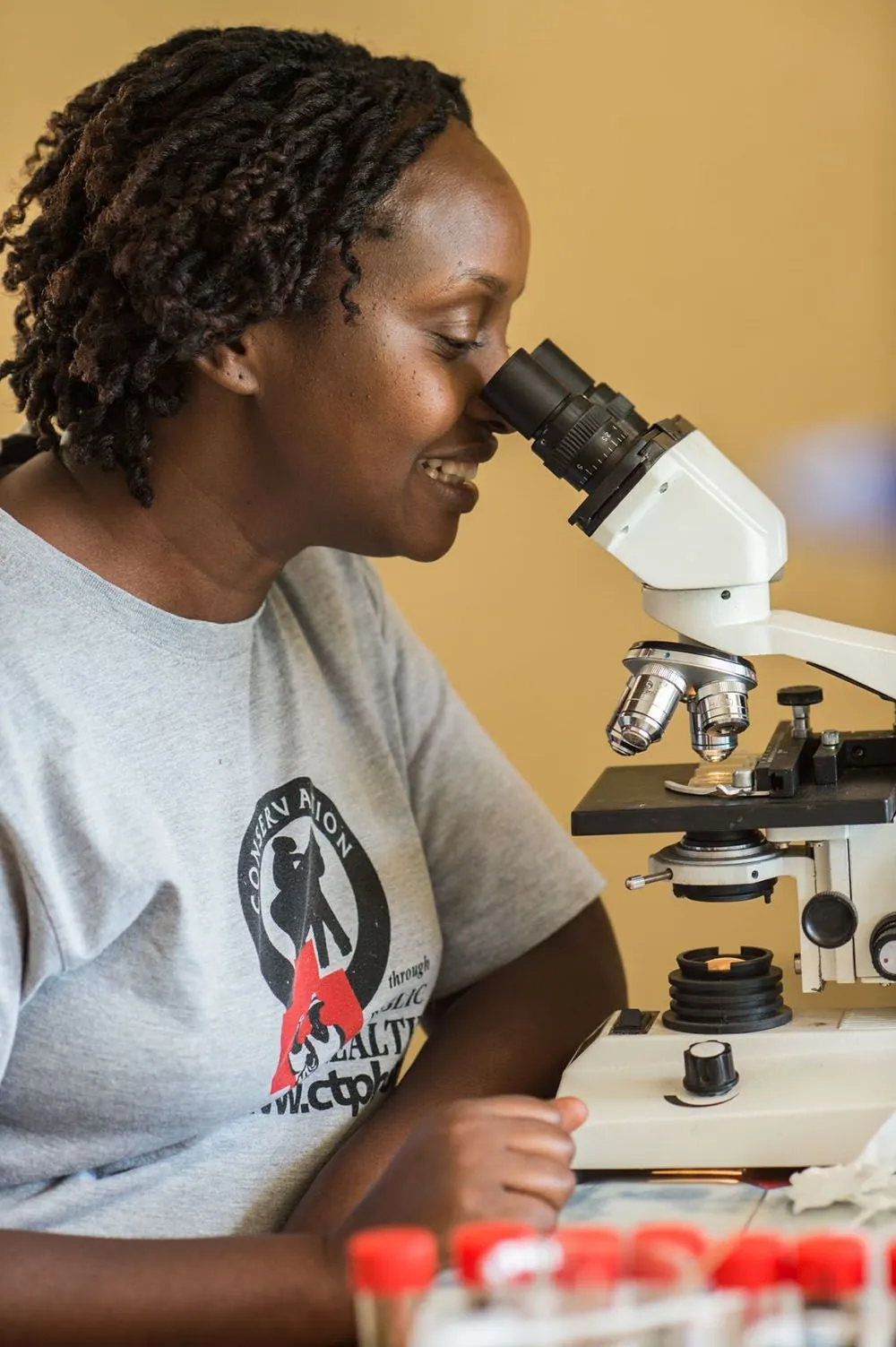
2023 DeHaan Finalist
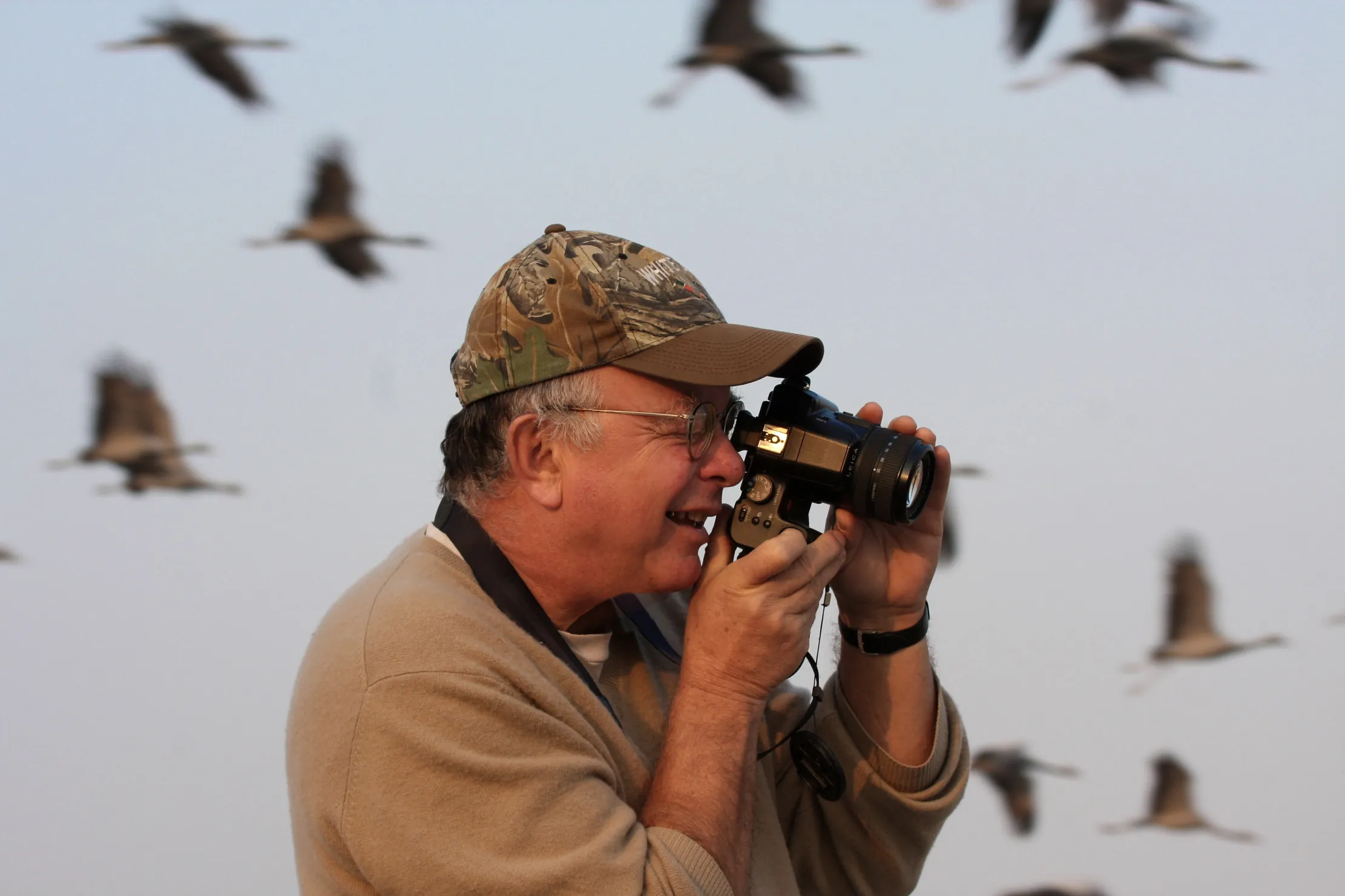
2006 Indianapolis Prize Winner
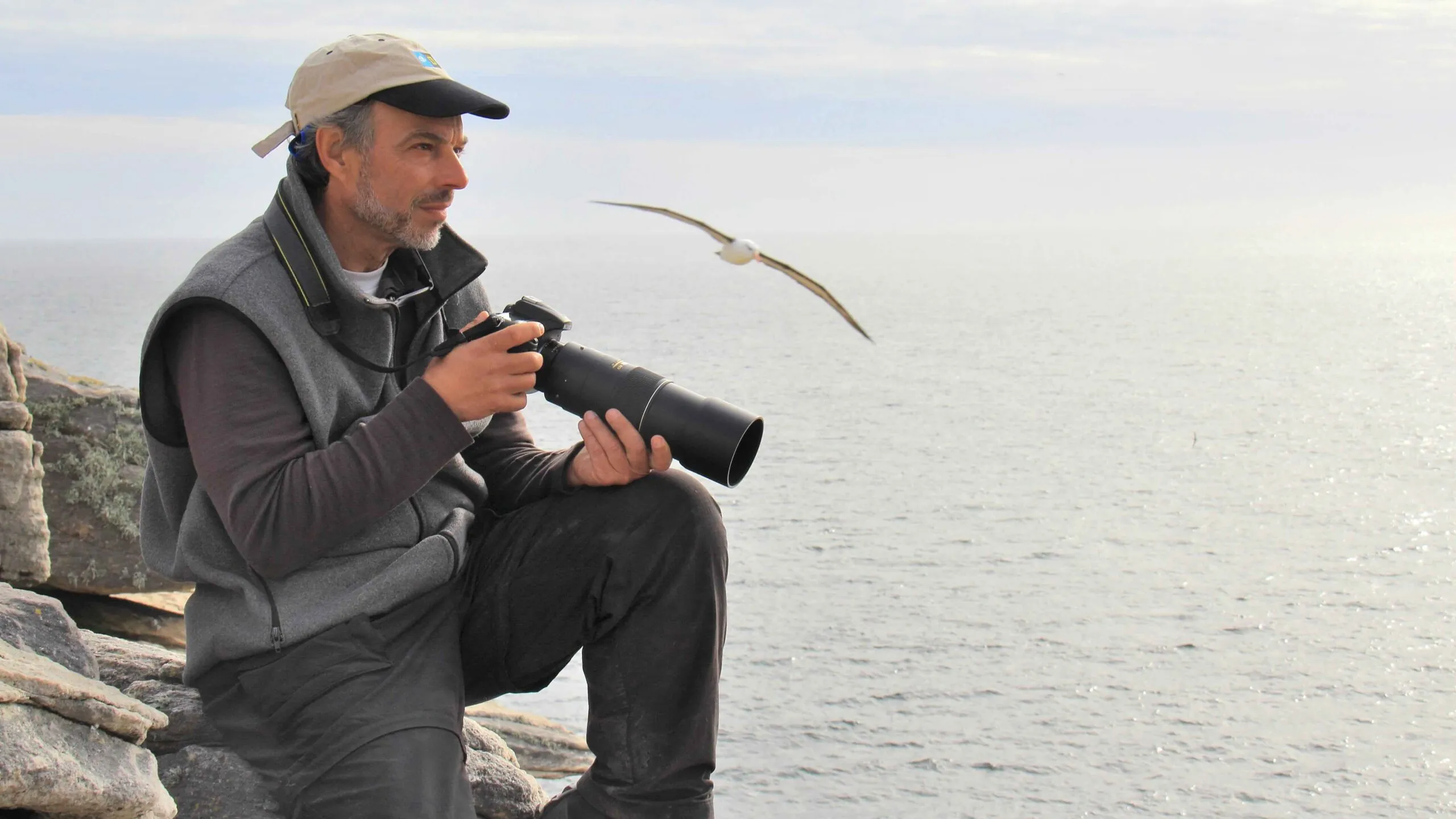
DeHaan Finalist
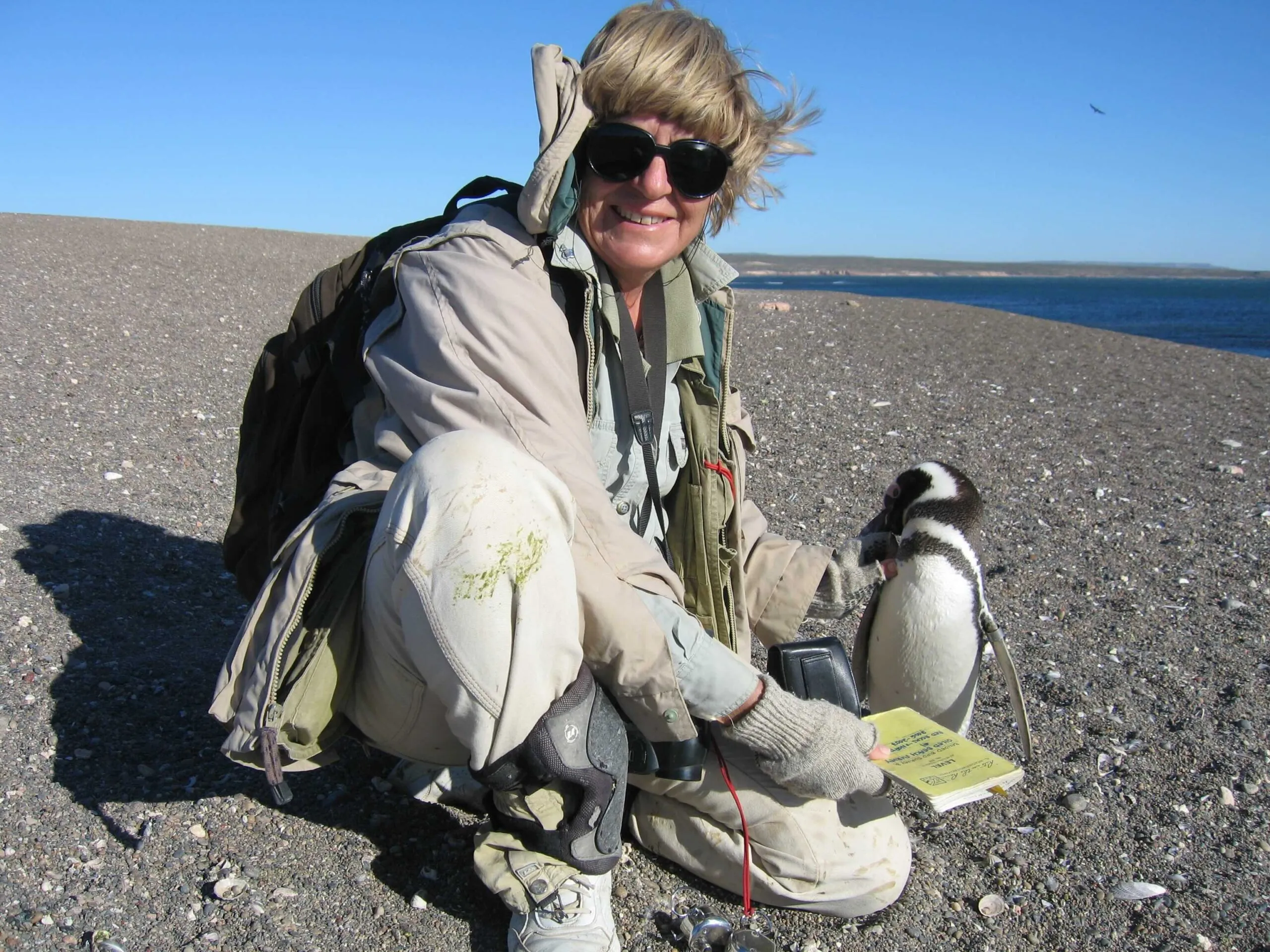
DeHaan Finalist
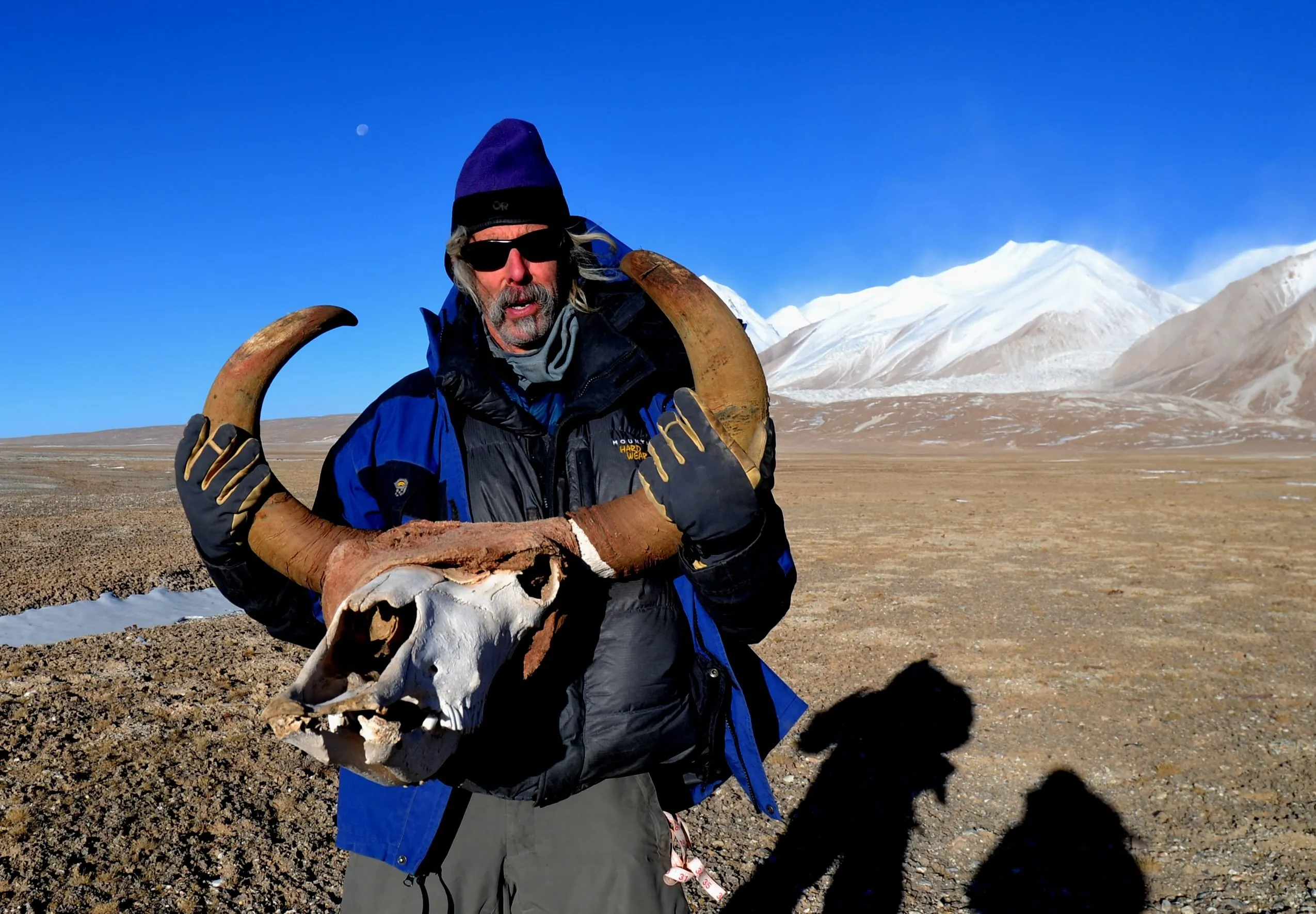
DeHaan Finalist
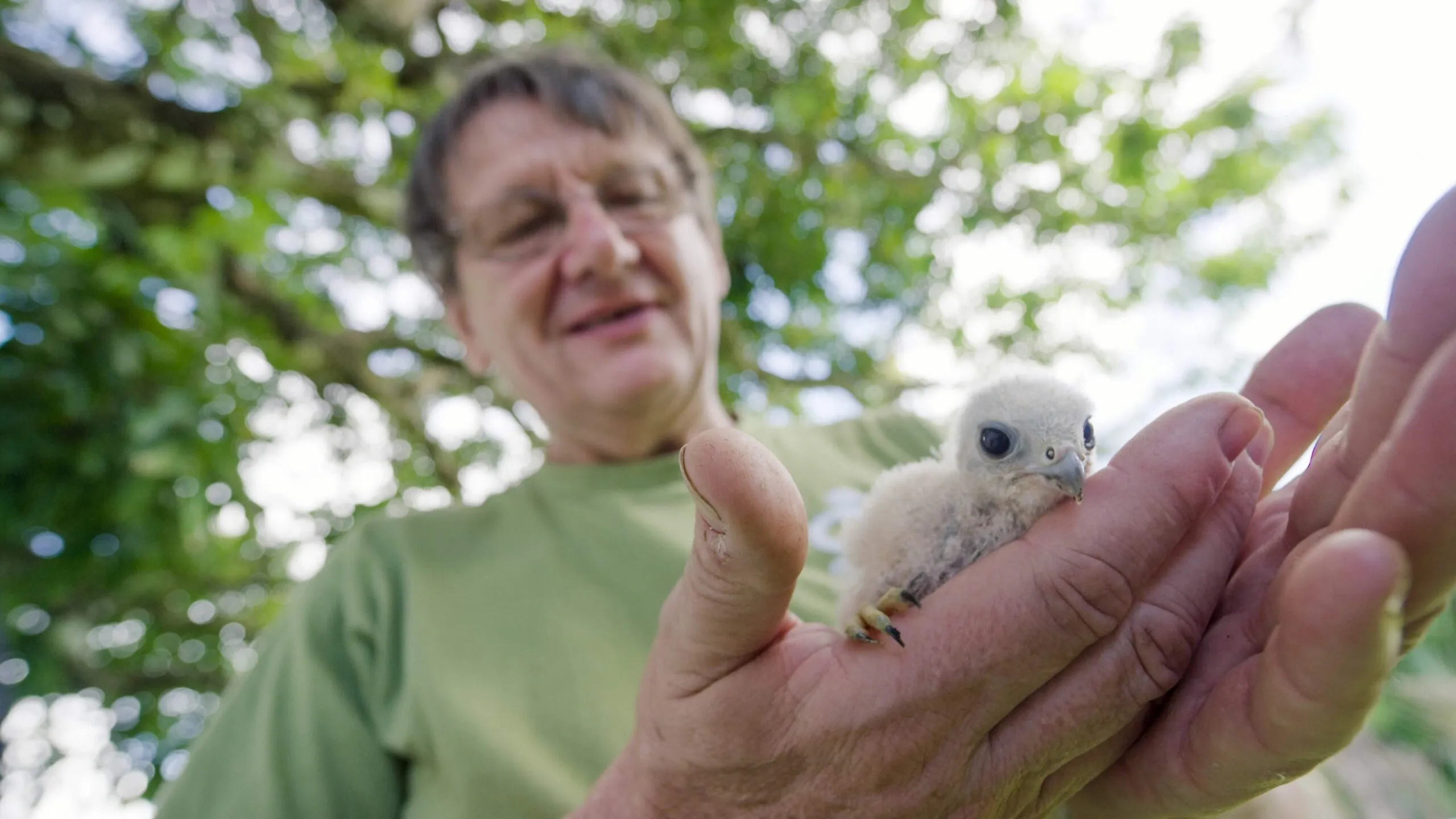
2016 Prize Winner


